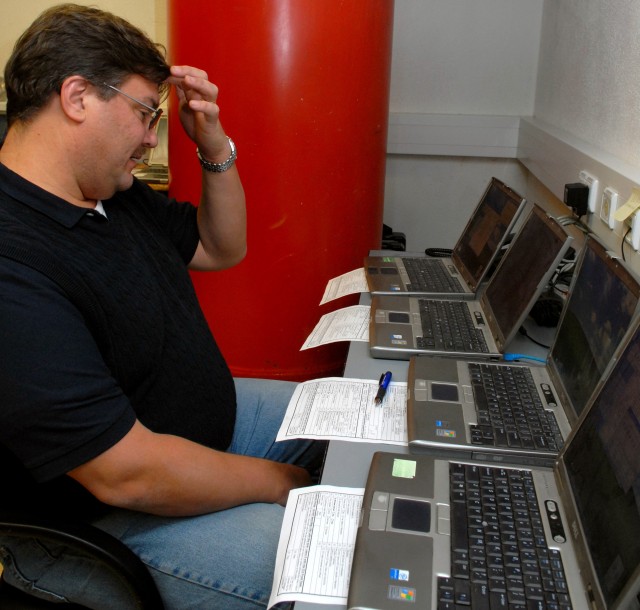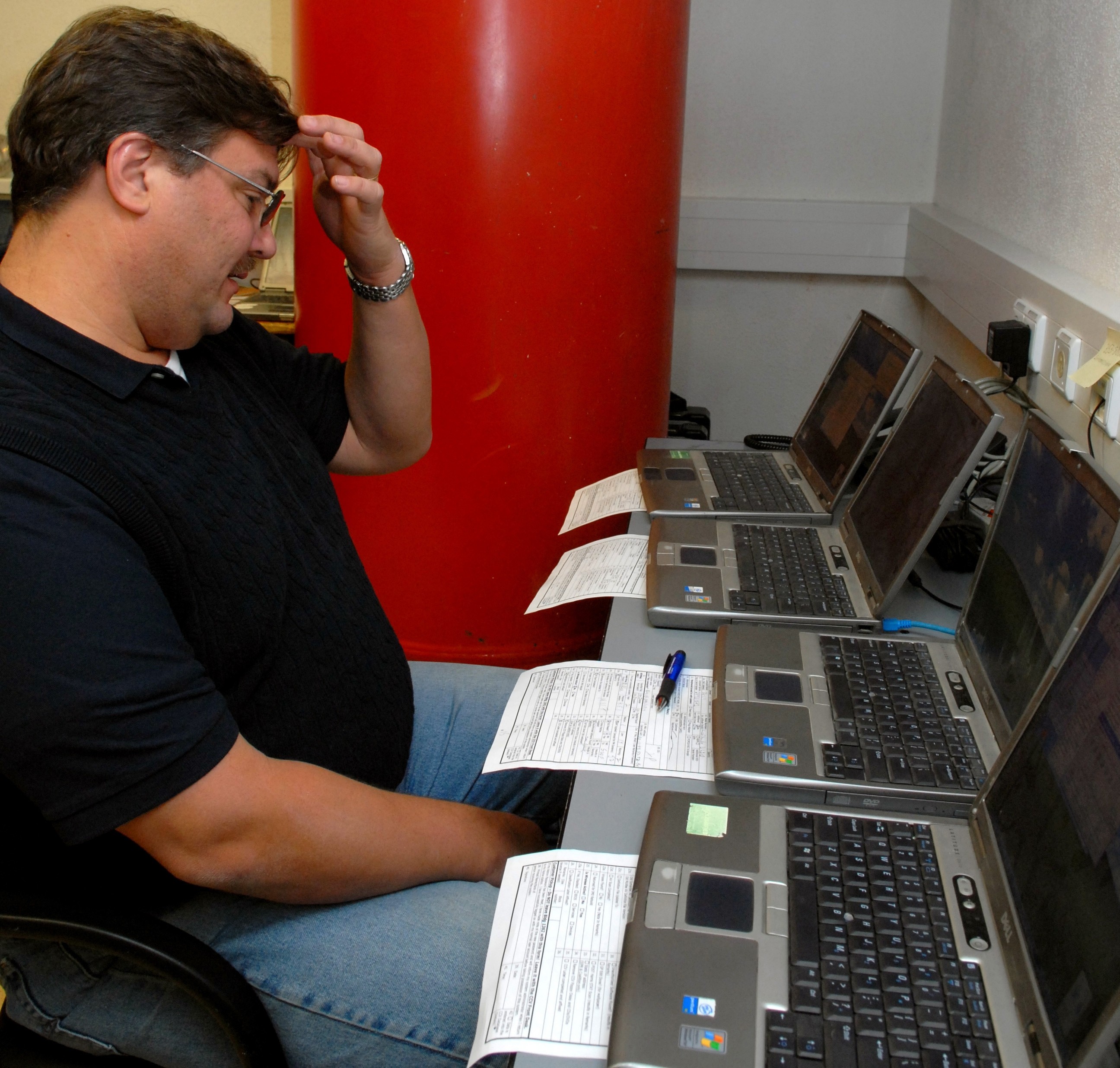
SCHWEINFURT, Germany (Dec. 5, 2007) -- Over the past several years the U.S. Army has invested billions of dollars in computer software, hardware and equipment to keep up with the world's ever-changing technology.
With the military's growing need for internet access comes an equal need to keep military networks, servers and systems safe from viruses, hackers and other underlying dangers that could hinder the safety and well-being of U.S. Soldiers and civilian employees.
Recently U.S. Army Europe's 5th Signal Command and the USAREUR directorate of information management sent an information infrastructure assistance team, or I2AT, to Schweinfurt, Germany to lighten the load of cleaning, updating and "wiping" computer systems for nearly 4,000 Soldiers returning from Iraq with USAREUR's 2nd Brigade, 1st Infantry Division.
"What we do is try to keep the Department of Defense's network secure," said James P. Boeger, I2AT member.
"Software programs in these computers have vulnerabilities where people can hack in from a 'back door' or use other aspects from our software to get on to our networks," said Boeger. "What we try to do is close all those doors so people who aren't authorized to get on the network don't get in."
The team started "delousing" the brigade's computers Nov. 19 and finished their mission Nov. 30. Working long days and sometimes nights, the team managed to scrub nearly 400 systems before handing the job back over to the brigade's communication section.
Delousing a computer is a process that ensures the machine is compliant with the policies of a given network. A few of these steps include updating the computer's antivirus programs and making sure other software is updated to meet Army standards.
The process of delousing a computer usually takes three to four hours, but can take several days for one system, depending on the condition of the computer.
"Our job is a very important one because if we didn't do it, then everything you have on your computer could possibly be disseminated to people who don't need it or who have plans on doing us harm," said Boeger.
"For example, with an e-mail virus, if one computer had a virus and someone opens the e-mail message, that message could be spread to everybody in the Army both overseas and within the continental U.S.," said Michael E. Coble, a USAREUR information assurance analyst.
The I2AT travels everywhere within the USAREUR footprint, delousing computers and making sure its systems and network integrity remain uncompromised.
"This is the first time we've done this for units returning from Iraq," said Boeger.
"We ultimately want to implement something so that we can do this for every unit that returns back to USAREUR from 'downrange.'"
"Every time you log on to your computer on a military network, someone is behind the scenes making sure it's a secure place for you to go," said Coble. "We are trying to ensure that no one can infiltrate the Army's network and disrupt missions."
Units redeploying from Iraq or Afghanistan can request the I2AT's assistance via the organization's web site -- a secure site accessible from government computers connected to the .mil domain only -- at https://iassure.usareur.army.mil.

Social Sharing